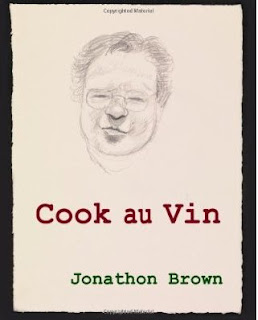There’s no point in saying ‘now here’s a gem’, because I suspect that with each Bach cantata I discover this year there will be treasure. But Sie werden aus Saba alle kommen (All they from Sheba shall come) BWV 65, the Epiphany conclusion of JSB’s first Christmas cycle for Leipzig in 1724, has an especially rich, jewelled instrumental cortege for its three wise men (Bassano's sumptuous depiction of the homage illustrated above).
One commentator reckons the additions to the usual strings and continuo – two each of horns, oboes da caccia and recorders – respectively stand for gold, frankincense and myrrh (associated with embalming; apparently recorders were especially connected with funeral music). John Eliot Gardiner, whose 6 January 2000 performance in Leipzig’s Nikolaikirche I’ve just heard, associates the recorders with ‘the high pitches..[of] oriental music’ and the oboes da caccia with eastern ‘shawm-like double-reed instruments (salamiya and zurna)'.
Whatever the significance, the pairs gild a splendid opening
processional with a hint of drone bass before the chorus parts’ canonical
entry, and the tenorial singularity of the oboes da caccia (model illustrated below) dances around the
bass aria.
The diamond, though, is the tenor’s number. We’ve moved from the
splendid gifts of the magi to the ‘humble heart’ offered by the reciter, with
‘the gold of faith, the frankincense of prayer, the myrrh of patience.’ As if to show how rich the non-material gifts can be, the three pairs plus two
violins play delightful little one-bar figures off against one another in a
lilting 3/8. This is more opulent and multicoloured even than the kings' opening procession.
Bach's choice of concluding chorale, set to a French 16th century tune, begins with the first line of what we know as ‘O God, our help in ages past’. Another great gift then, infinitely more memorable than the compromised Bach concert at Kings Place I heard last Thursday (which won't stop me going to more with different ensembles in KP's Bach Unwrapped series). Here's another Harnoncourt performance on YouTube so you can hear what I've been writing about - though nothing can match the trumpet-like splendours of Gardiner's horns.
Bach's choice of concluding chorale, set to a French 16th century tune, begins with the first line of what we know as ‘O God, our help in ages past’. Another great gift then, infinitely more memorable than the compromised Bach concert at Kings Place I heard last Thursday (which won't stop me going to more with different ensembles in KP's Bach Unwrapped series). Here's another Harnoncourt performance on YouTube so you can hear what I've been writing about - though nothing can match the trumpet-like splendours of Gardiner's horns.
One strand of the Christmas reading was to devour the rest
of Ludmila Ulitskaya’s works so far translated. The two books in question are diametrically
opposed in style. The Funeral Party is a novella I shall read again, engaging
as it is from first paragraph to last. It's a quirky evocation, in the manner of the last act
of La Bohème but more cheerful, of friends gathered in a New York attic round a dying Russian émigré
artist, Alik, a free spirit whom everyone adores (and we do, too, thanks to
deft strokes from Ulitskaya) His crazy wife and former lovers among the women
initiate rather haphazard events such as the consecutive visits of a priest to give the last rites and a rabbi.
The death seems inevitable, and not to be feared; the burial is followed by a
funeral party which turns out, as all such should, to be a vibrant celebration of a life.
Throughout, Ulitskaya’s skill is in the little things that
the characters say and do. There’s not much room for any of this in the
relatively epic Daniel Stein, Interpreter. It’s a curious semi-fictional
testament to Oswald Rufeisen, a Polish Jew who saved others while working for the
Gestapo as an interpreter before emigrating to Israel and becoming a Carmelite
priest. He’s clearly a good man, and Ulitskaya uses his reconciliatory words
and deeds as a reflection on the riven religious factions in the beleaguered
holy land. It seems that Stein/Rufeisen visited his old friend Karol Wojtyla in
the Vatican and encouraged
him to recognize Israel
– I had no idea the Catholic church didn’t until then – and to be the first
pope ever to visit a mosque.
The problem is that because reflections on Daniel/Dieter are
mostly testaments in epistolary form, we miss the more immediate human idiosyncrasy which is Ulitskaya’s strength in the three other books of hers I’ve
read. The scope, ranging from 1930s Poland to the 1990s, is certainly
ambitious, though I can think of other masterpieces which convey the theme of
what entails true Christian goodness more succinctly (that wonderful French film Of Gods and Men remains a benchmark). And I don’t know whether Daniel is
supposed to have a fault, but for me it inevitably comes when he fails to
acknowledge the right to inclusion of a parishioner’s gay son, protesting
that homosexuality is beyond his understanding because ‘women are so beautiful, so
attractive’, and advising the mother to send her son away from home so that he doesn't trouble her. So much for
Christ-like acceptance.
Interesting, isn’t it, that just because a novel takes a big
theme like the Holocaust and the Jews in Israel, that doesn’t make it more of a
masterpiece than one which adopts a slice of life and infers the larger
resonances from what’s done and said in its duration. The Funeral Party is for
me the masterpiece of the two (and has the advantage of such simplicity that,
like Chekhov’s stories, I imagine I could struggle through it in the Russian).
But I still want to read everything Ulitskaya has written, especially the novel Vladimir Jurowski selected in his typically challenging summer reading list for The Arts Desk back in 2011, Imago. Hopefully that's next on the list for translation.
_-_The_Adoration_of_the_Kings_-_Google_Art_Project.jpg)






._1890.JPG)

+in+One+Man,+Two+Guvnors+at+the+Theatre+Royal+Haymarket.+Photo+credit+Johan+Persson.jpg)

.-photo-by-johan-persson.jpg(1).jpg)












